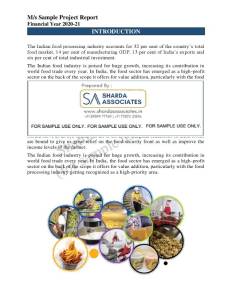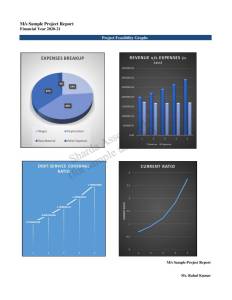Project Report For Mushroom Farming
Introduction
Project report for Mushroom Farming is as follows.
Mushrooms are one of the foods that are vegans consume the most of, with about 3.3 grammes of protein per 100 grammes. Vegetarians prefer high-protein foods because historically, meat has been a major source of protein in the Western diet.
More label-conscious consumers are favouring products with natural components. Cosmetics with clear labels that are free of synthetic chemicals and manufactured from plant extracts are becoming more and more popular.
As a result, manufacturers of personal care and cosmetics are increasingly incorporating botanical components into the formulations of their products, which is probably going to result in higher demand for those products.
Mushrooms have a short expiration life of one to three days due to their high water content. Therefore, transportation and storage after harvest are crucial components of effective output.
As a result of the worldwide pandemic, lockdowns have been enacted to stop the disease’s spread. Due to a labour shortage and the outbreak’s unpredictable nature in the early months, the logistics or product delivery sector experienced delays. Due to the brief shelf life and destruction of the mushrooms, farmers suffered substantial losses.

Market Potential Of Mushroom Farming
The global mushroom cultivation market is expected to grow at a CAGR of 3.9% during the forecast period, reaching USD 16.65 billion in 2020.
Rising demand for mushrooms, an increased focus on health and wellbeing, and a preference for organic products are some of the key factors driving revenue growth in the global mushroom cultivation market.
Another factor that is likely to increase demand for mushrooms in the future is the ease with which food items and vegetables can be purchased on various online platforms.
Edible mushrooms provide a variety of minerals, including riboflavin, vitamin D, potassium, and other essential nutrients. In some cases, people will substitute mushrooms for meat because they have a similar nutritional profile to many vegetables.
According to studies, eating mushrooms helps with weight control, immune improvement, and cancer risk reduction.
Mushrooms are becoming more popular in developing countries due to their health benefits. The growing popularity of Vegan and organic foods, as well as a growing emphasis on a healthy diet, are driving global demand for edible mushrooms.
In recent years, mushroom cultivation has grown in popularity on both small and large-scale farms and greenhouses around the world. Mushrooms grow without the need for sunlight, organic matter, or high-quality or nutrient-rich soil to produce adequate yields.
Mushrooms can also convert non-nutritive materials such as wheat or paddy straw into nutrients. Mushroom cultivation has also become a viable source of income for small farmers due to its low cost.
As per the China Business Research Institute, China was the world’s top edible mushroom grower in 2017, with an estimated annual production of 38.42 million tonnes. This accounted for almost 75% of the total world output. Furthermore, the experts reported that edible mushroom exports were USD 3.8 billion in the same year.
The Asia Pacific area leads the worldwide mushroom producing market. China, the world’s largest producer of mushrooms, has the highest per capita consumption of any country.
The growing vegan population and an increasing tendency toward nutrient-dense foods have resulted in mushroom market development in Asian countries.
Project Report Sample On Mushroom Farming
Need Help?
Create 100% Bankable Project Report





